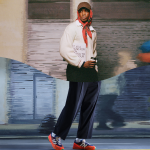
The rise of political content creators
Was the secret of Trump's success really the ‘bro vote’?
November 18th, 2024
More and more political parties are turning to content creators to support their electoral campaigns in an attempt to reach younger audiences, who are typically difficult to engage through traditional communication methods. It might seem like an obvious strategy, considering the importance content creators have gained in marketing, but it's not easy to recruit a famous online personality known for different content and convince them to promote a political message. Although content creators are generally reluctant to be politically outspoken, they often prove more convincing than other forms of political communication, like TV commercials. Additionally, they usually cost much less than the monumental budgets of election campaigns. With this in mind, political communication agencies are beginning to involve micro-influencers, who have proven to be particularly effective, especially during local elections.
@imaxclips_ Theo von on president debate #fyp #foryou #theovon #joerogan #trump #kamala #podcast #clip #viral original sound - imaxclips_
The fact remains that this approach is not entirely new: already during the 2016 U.S. presidential campaign, some party agencies had worked with YouTubers to produce content encouraging people to register to vote. In the United States, participation in elections requires voter registration, but given that voter abstention is among the highest in the West, extensive campaigns always appear in the weeks before the vote to remind people to register in time. At first glance, this may seem like a neutral recommendation, but in the U.S., electoral committees use content creators to gain a strategic advantage. Essentially, they focus on voter registration within demographic groups where they know they perform better than opponents: the Democratic Party, for example, promotes such campaigns among ethnic minorities, while the Republican Party targets rural areas. Content creators are ideal for reaching these specific demographics.
How much did content creators influence Trump's victory?
Men between 18-29 shifted 30 points right. The bro vote was real pic.twitter.com/8cUel1uqtQ
— Aleph (@woke8yearold) November 6, 2024
During the 2016 and 2020 election campaigns, Trump already enjoyed the support of several content creators, particularly active within online communities close to the American far right. This time, however, the Republican candidate invested far more resources and attention in this area. The goal – successfully achieved – was to secure the so-called "bro vote", or the votes of young male voters aged 18 to 30, who historically tend to abstain from voting. Additionally, several analyses of the presidential elections have highlighted a shift to the right among a portion of younger voters, especially males. A widely shared hypothesis among experts is that, within this demographic, content spread via podcast platforms and social networks has been far more influential than traditional media, even without support from major editorial groups.
@joe.rogan.clips33 Rogan Asks Trump If He Got a Scar in His Ear #joeroganpodcast #joeroganexperience #joeroganclips #joerogan #tump2024 Originalton - Joe Rogan Clips
To determine which content creators to grant interviews, Trump was advised by a select group of young consultants – including his 18-year-old son. Among those selected were, for example, YouTuber Logan Paul, comedian Theo Von, and Joe Rogan, host of the most popular podcast in the United States, The Joe Rogan Experience, which has over 14 million followers on Spotify alone. At the end of October, before his official endorsement, Rogan hosted Trump on a three-hour episode of his show, which then received over thirty million views in less than two days. The personalities Trump chose for interviews in the weeks leading up to the vote are associated with the so-called “bro subculture.” Historically linked to colleges and fraternities, the “bro subculture” refers to any male-dominated social environment characterized by a form of toxic camaraderie among its members, typically leading to hyper-masculine behaviors. Unsurprisingly, various videos circulated on TikTok featuring young fraternity members celebrating Trump’s victory by dancing to the song “YMCA,” which is typically played at the end of his rallies. In recent years, a growing number of content creators have achieved significant success by appealing to this specific audience, often comprised of teenage or preteen boys. These creators frequently echo far-right rhetoric, making extensive use of conspiracy theories and providing simplistic responses to highly complex social dynamics. Content creators active within these niche audiences are now considered one of the reasons for the rise in political polarization, especially among younger generations.



















































